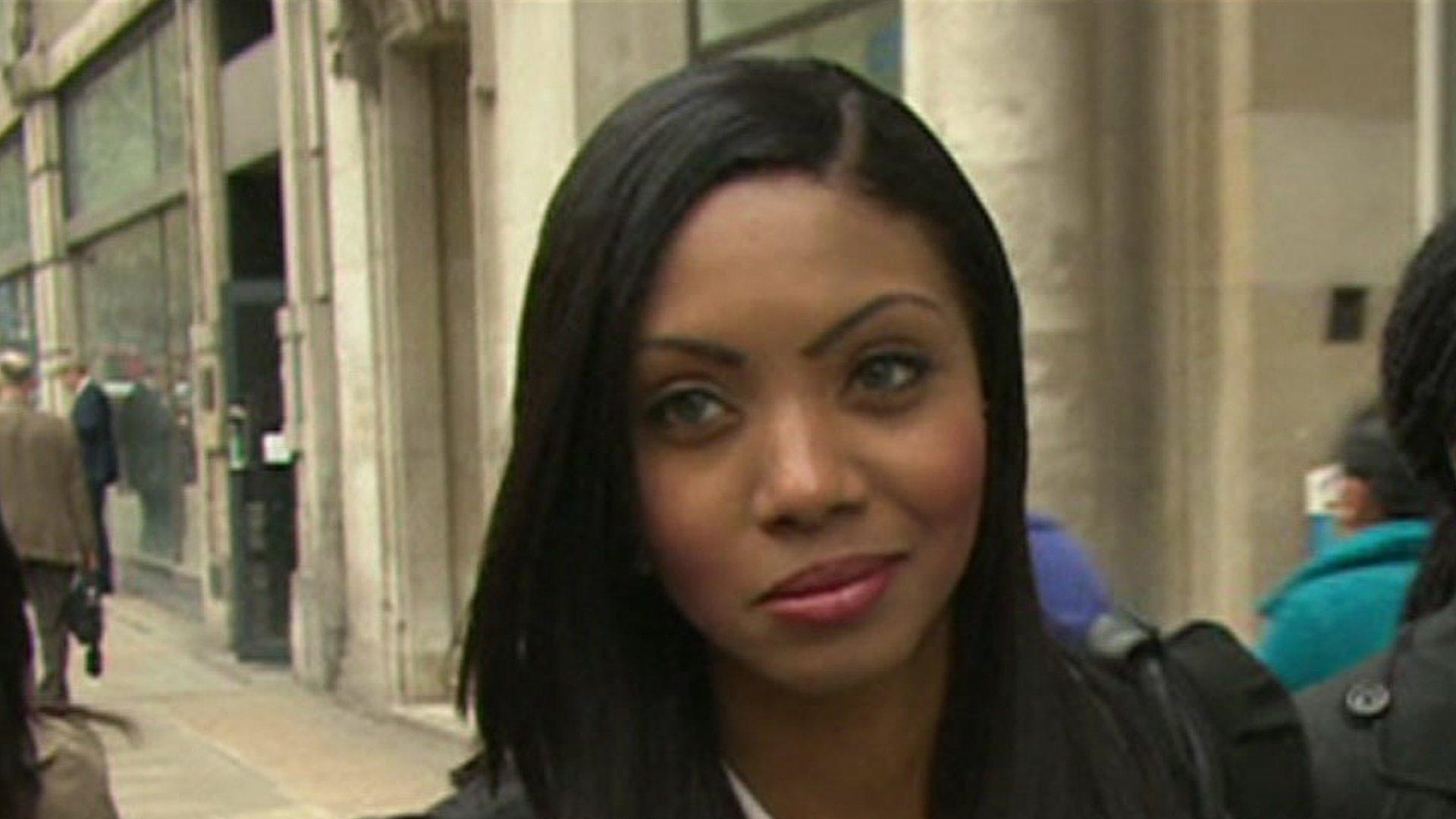How the Met investigates its own
- Published
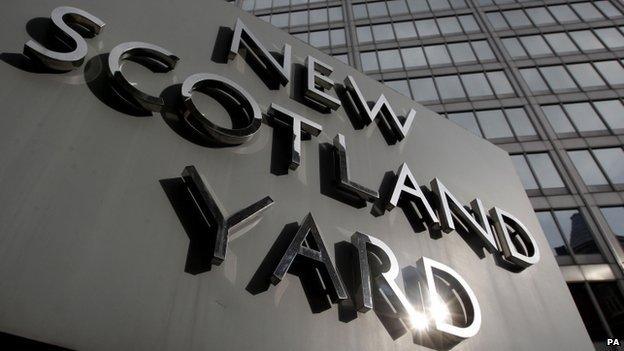
Inside the Metropolitan Police Service's most secretive section, which investigates bad apples in the force.
"OK, folks, good morning and welcome, what have we got from the weekend?"
On the 23rd floor of the Metropolitan Police's west London office, Detective Chief Superintendent Alaric Bonthron begins a morning briefing for one of the force's most secretive sections.
Known as a "grip and pace" meeting, it's a regular catch-up for senior officers from the Department of Professional Standards, the 380-strong unit responsible for dealing with complaints against officers and staff, deaths in custody, police misconduct - and corruption.
"We had a CAD (computer-aided dispatch) message from an anonymous female alleging that police were involved with the supply of drugs," says one of the dozen senior officers sitting around the table, in a room with panoramic views over London.
Another policeman chips in with details of a separate allegation.
"One officer... tried to persuade another officer to amend their notes whilst they were with a prisoner in a hospital, I understand," he says.
Det Ch Supt Bonthron checks that the information is being dealt with appropriately and moves on down a list which also includes the latest court cases and misconduct hearings.
These are busy times for the department, spread over four floors and with a budget of £24 million.
Over the past two months it's carried out investigations into a Met policeman over allegations of voyeurism and inciting prostitution; a Heathrow community support officer who admitted stealing a wallet containing almost £2,500; and a police recruit, who's accused of publishing extreme pornography.
This was also the unit which investigated the so-called "plebgate" affair, which led to one officer being jailed - and sacked, along with three others.
Bonthron says he's sometimes shocked by what his colleagues have got up to.
"There are things that make you look up and think 'has somebody actually really done that?'," he says, adding that "99.9 percent" do a good job when they come to work.
"Unfortunately, we have a few people who either make mistakes or do stupid things and the rest of the organisation doesn't want those people in the job."
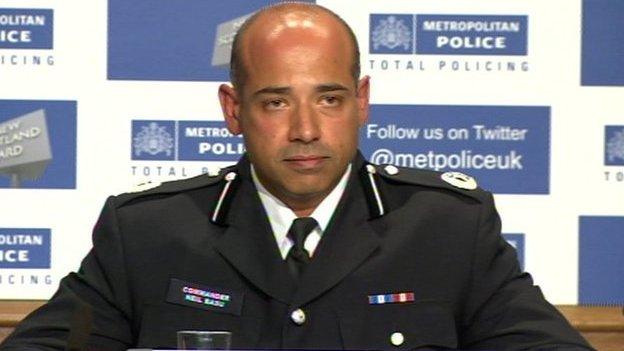
Commander Neil Basu worked in the Met anti-corruption unit known as the "ghost squad"
The corruption arm of the unit has its origins in a drive against so-called "bent cops" initiated in the early 1990s by the then Met Commissioner Sir Paul - now Lord - Condon, who famously told the Home Affairs Committee that he had "a minority of officers who are corrupt, dishonest, unethical". He suggested they numbered around 250.
Investigations conducted by the shadowy Scotland Yard unit that became known as CIB3 found that officers were passing information to criminals - and journalists - in return for money; there were cases where evidence had been sabotaged; and police, it was discovered, had been complicit with informants in plotting crimes in order to share the spoils.
In 2000, Neil Basu, who now heads Scotland Yard's organised crime and gangs command, was recruited into the unit that was once known as the "ghost squad" because it was so secretive.
"We felt kind of excommunicated from the Met," he reveals. "I sort of joke about it now, but I can't remember being invited to a leaving do for the three years I was on professional standards."
Intelligence hub
Basu, who was then a "green" detective inspector, says he was "wide-eyed" at the extent of corruption he came across.
"My God, none of us realised it was at this level. What we were looking at here was people who were drug-dealers, conspiracy to commit kidnap, conspiracy to commit violence, serious assaults, perhaps even attempted murder".
Investigating corrupt officers was even more challenging for Basu and his colleagues because the suspects were aware of police tactics, including surveillance.
"Imagine how difficult it is to follow somebody who knows what cars the police use, who knows what techniques they use, who know exactly where to go, what to look for, where to park, how to conduct themselves in a busy environment," he says.
It may be one of the reasons why cases in which police corruption is alleged to have played a part, such as the murder of the private investigator Daniel Morgan in 1987, can be so hard to solve.
And it may explain why the Department of Professional Standards, though no longer a "ghost squad", is still sealed off from the rest of the Metropolitan Police.
"We are a force within a force", says Alaric Bonthron. "Everything I could do if I was out on a borough... we can do exactly the same".
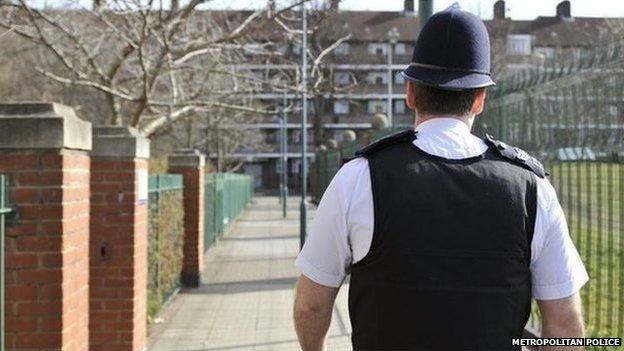
More than 48,000 people work for the Met, which has an annual budget of £4.1bn
The unit has its own intelligence hub and dedicated surveillance teams, so if it needs to move in on an officer or member of staff within the force no one else will find out.
"The people who know are the people who need to know," says Det Ch Supt Bonthron.
"The commissioner gets briefed on the high level jobs... but again you've got to be careful who you include in a lot of these jobs."
The process of preventing corruption begins at the recruitment stage, when new joiners are vetted, drug tested and warned about the dangers of dodgy friendships and inappropriate social media postings that could leave them vulnerable.
Fiona Taylor, a deputy assistant commissioner who's in overall charge of professional standards, says it's a "robust" process - but she acknowledges the need for continual vigilance as policemen and women forge their careers.
"Policing is a very, very complicated job in the 21st century - we need to understand that if somebody makes a mistake and we can rehabilitate them, we can develop them, we can bring them back into the organisation, then we will do that,". she explains.
She adds that most officers go about their business "very bravely and very professionally". The number of dismissals for misconduct issues in the Met is fairly stable - 48 in 2013/14 and 64 the previous year.
But the former Strathclyde Police assistant chief constable, who joined the Met in 2013, has a tough side too, as she makes clear she's not "in the business" of keeping corrupt or bad officers within the organisation.
"We need to have the capacity to catch... potentially serious criminals who exist within our midst -- and you know we do that!"
You can hear Danny Shaw's full reports on BBC Radio 4's Today programme, Monday 8 to Thursday 11 December from 06:00-09:00 GMT.
- Published18 March 2014
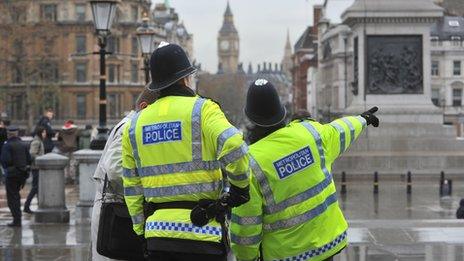
- Published4 April 2014
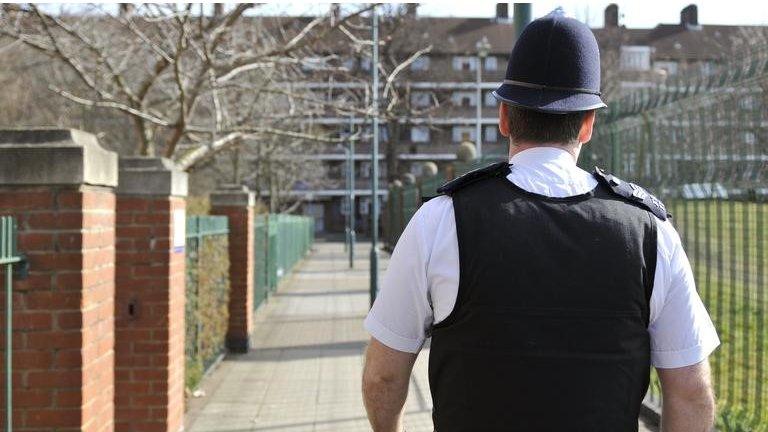
- Published24 October 2014
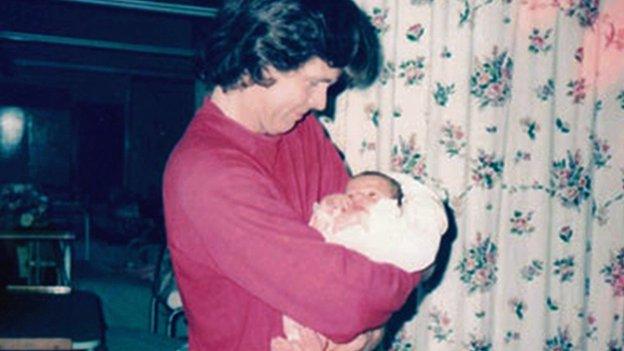
- Published2 September 2014
